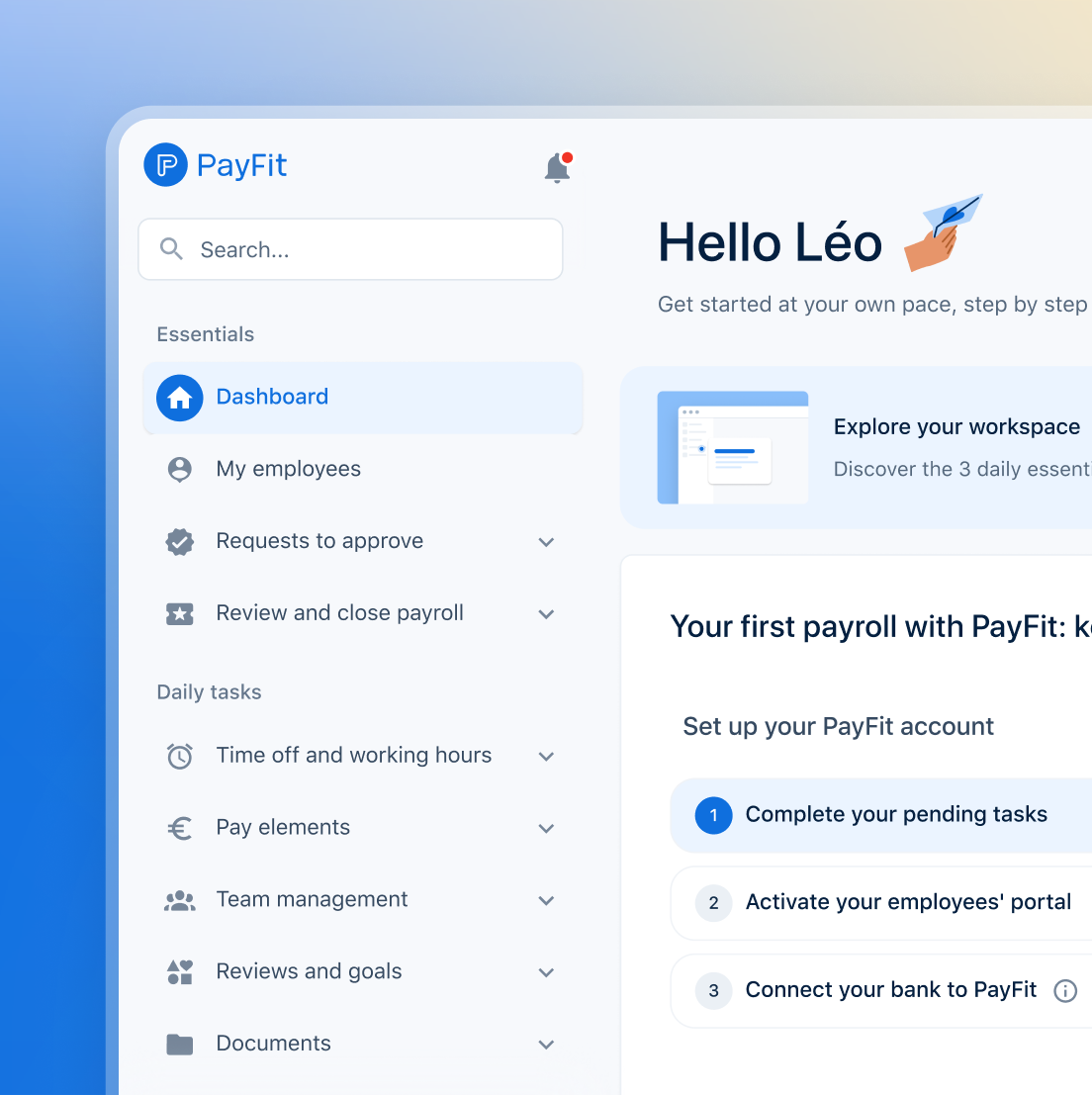✨ Health insurance, now in PayFit - learn more
💷 All the rates & thresholds you need to know for 25/26...right here
✨ The Payroll Journey: Start, Scale & Succeed Globally - learn more
✨ Health insurance, now in PayFit - learn more
💷 All the rates & thresholds you need to know for 25/26...right here
✨ The Payroll Journey: Start, Scale & Succeed Globally - learn more

The 2024 Autumn Budget has landed. And this year marks a lot of fresh firsts.
This was the first budget delivered by a Labour government since 2010. And the first one to be delivered by a female Chancellor, Rachel Reeves.
A new party in power usually means a very different take on UK public financing. And we’d say this definitely was the case with this year’s budget. Many announcements, including that £40 billion will be raised through increased taxes, will stir up healthy debate over the coming days, especially those relating to UK employer taxes. Here’s a brief recap of the top headlines.
The increase to Employers’ National Insurance Contributions (NICs) up to 15%
The raising of capital gains tax rates
The increase to the National Minimum Wage rate, and
A bump to the Carer’s Allowance
Now, for a deeper dive into the top announcements most likely to affect UK businesses and their employees next year.
But first...
As mentioned, the budget is set to raise up to £40 billion worth of funds through taxes.
If you’re thinking that’s a very large number, you’d be correct. When it comes to taxes raised through National budgets here in the UK, that is indeed a very big number - the biggest ever in cash terms to be raised from a single budget.
As many economists and experts predicted, this budget was slated to bring major change, and it has. Higher taxes usually come with increased borrowing, spending, but also investment. And Reeves has made it clear growth is her core mission.
The new Labour government wants to re-establish economic stability while ensuring investment delivers true returns for taxpayers. However, raises in employer taxes mean increased pressure for businesses, which could have an undesired effect on groups the government is seeking to protect, such as working people.
As we always say with these budgets and statements, time will only tell how these changes will play out. For now, let’s take a closer look at the main changes that are sure to impact UK small businesses…
From rises in rates like Employer National Insurance to a bump in Employment Allowance, here's what was announced for businesses during the Autumn Budget.
Key here is the ‘employer’ part of this statement. While Reeves upheld her promise to leave employee NI alone for working people, employers across the UK should prepare for a substantial rise in their National Insurance Contributions (NICs).
The business rate will rise from 13.8% to 15%. Additionally, the individual salary threshold for paying this tax will decrease, meaning businesses will need to start paying contributions from £5,000, not £9,100 (the current threshold).
As expected, Reeves announced that she wouldn’t hike NI, income tax and VAT for employees, giving working people slightly more breathing room against a continuously challenging economic backdrop.
NIC wasn’t the only thing to receive a hike. Capital gains tax will be raised in order to bring in more funds from selling assets like second homes, investments and even shares.
The lower rate will increase from 10% to 18%, while the higher rate will move up from 20% to 24%.
While not totally relevant for businesses, it’s worth noting that rates for residential properties remain unchanged.
Payroll audit guide & checklist
As perhaps a counterbalance to the NIC increases, the Employment Allowance will be extended from £5,000 to £10,500, easing the burden for small businesses.
According to the Chancellor, this adjustment should mean up to 865,000 employers can enjoy relief from National Insurance next year, while over a million will be able to maintain or reduce their current payments.
In perhaps a very welcome change for employees who also find themselves carers, the UK Carer’s Allowance will get an uplift from £81.90 per week to align with 16 hours at the National Living Wage weekly. This means working carers will be able to earn over £10,000 annually while still receiving the allowance.
Last but not least, The National Living Wage for workers aged 21 and over will rise by 6.7%, from £11.44 to £12.21 per hour starting next April.
For those aged 18 to 20, the National Minimum Wage will go up from £8.60 to £10.
Apprentices will enjoy the largest pay bump, with their hourly rate jumping from £6.40 to £7.55.
As expected, this year’s Autumn Budget has brought major change to the UK fiscal landscape. There are many new measures that will impact businesses for months and even years to come, such as an increase in rates such as employers’ NI.
In addition, there are plenty more legislative changes to expect from the Employment Rights Bill 2024. All of this means business owners and operators are sure to have their work cut out when it comes to adhering to employment law and maintaining payroll compliance.
Staying on top of new legislation, especially for payroll, doesn’t have to be difficult. Advances in technology mean legislation changes can now be coded into software quickly and swiftly, but only for the right platforms.
We designed every aspect of PayFit with the non-payroll expert in mind so HR admins and small business leaders can run payroll quickly and easily. Plus, our team of payroll and product experts ensure all upcoming legislation changes are coded in before they happen, so your payroll is always compliant.


Learn how to register for Payrolling Benefits in Kind (PBiK) & simplify HMRC reporting. Discover 2025/26 updates & prepare for mandatory payrolling in 2027.

We explore the proposal for a £1,600 monthly universal basic income (UBI) trial in England, considering all the pros, cons and payroll implications.

If you pay Class 1 National Insurance, you can qualify for what’s called the Employment Allowance, and a lower Employer NI bill. Find out how here.

Read our guide to answer the question ‘what is small employers’ relief’, to find out how you can qualify as a business, and how much you can claim.

In this post, we’ll look at TUPE (Transfer of Undertakings Protection of Employment Rights), how it works and what employers need to know.

A recap of the 2024 King’s Speech, the announcements affecting businesses and their people teams and how HR leaders can adapt.

See what's new in PayFit
New features to save you time and give you back control. Watch now to see what's possible